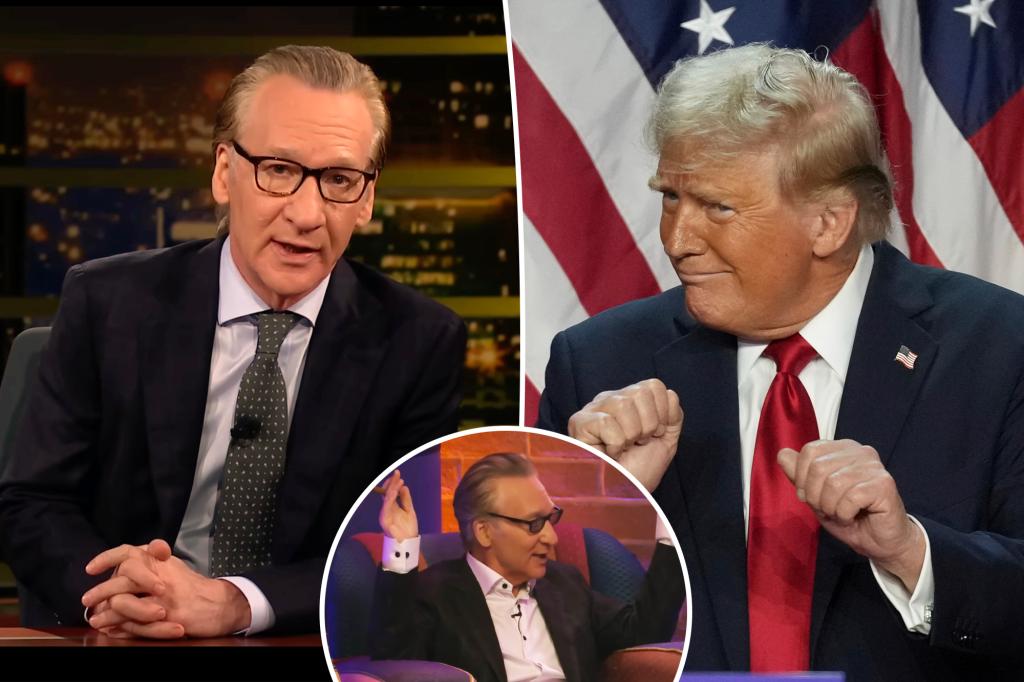Bill Maher is contemplating stepping back from his long-running HBO talk show, “Real Time with Bill Maher,” due to his concerns regarding the potential re-election of Donald Trump. In a candid discussion with actress Jane Fonda on his “Club Random” podcast, Maher expressed his anxiety over Trump possibly emerging victorious against Vice President Kamala Harris in the upcoming presidential election. Reflecting on the tension associated with Trump’s presidency, Maher revealed that the thought of another four years of discussing Trump’s policies overwhelms him, stating, “I did Trump… I’ve done it.” His previous commentary on Trump, including calling him a “con man” and predicting he wouldn’t concede the election, highlights his longstanding engagement with the political landscape shaped by Trump.
During the podcast, Fonda inquired why Trump seemed more antagonistic to other hosts, such as Jimmy Kimmel, while being somewhat less hostile towards Maher. Maher clarified that Trump does express hostility towards him, citing weekly tweets from Trump that disparage Maher’s show. The back-and-forth illustrates the fraught relationship between comedians and political figures, especially in the current media climate where political discourse is often intertwined with entertainment. Despite the friction, Maher maintained that the political focus of his show remains essential, even as he considers shifting to new topics as suggested by Fonda. He argued that politics is inescapable since Trump’s presence will undoubtedly dominate the news cycle.
“Real Time with Bill Maher” has been a platform for Maher to share his views and critiques since its debut in 2003, continually engaging with topical discussions and featuring various guests. Although Maher has enjoyed renewed success with a two-season extension through 2026 for his talk show, he is grappling with the notion of longevity in covering Trump-centric content. His concerns reflect a broader sentiment among media figures regarding the exhaustion of politically charged programming, particularly when it revolves around contentious figures like Trump. This fatigue may influence Maher’s potential decision to step down if navigating another term under Trump becomes too cumbersome for his comedic ethos.
Despite the heaviness of political discourse, Maher has expressed a desire to avoid entering a mindset of “pre-hating” regarding Trump’s presidency and administration. He acknowledged that while he harbors a lack of optimism, he prefers to adopt a wait-and-see approach to Trump’s potential return to the White House. His remarks highlight a threshold of curiosity about the impacts of disruptors within the political arena, indicating that radical changes might be necessary given the situation the country finds itself in. Maher’s call for a “colonic and a slap in the face” speaks to a yearning for a disruptive force to challenge the stagnation he perceives in American politics, underscoring the dichotomy of hope and skepticism in his outlook.
The discussion with Fonda also acts as a microcosm of the larger cultural and political conversations happening in the media landscape. Maher’s exploration of Trump’s influence reflects the complexities of political commentary and the balance between critique and engagement. Fonda’s suggestion for him to branch out illustrates the continual reevaluation comedians face in addressing controversial figures and the societal implications of their narrative choices. Yet, Maher remains tethered to the political sphere, understanding that Trump’s constant presence is a phenomenon that shapes public discourse across all mediums.
Ultimately, Maher’s reflections illuminate the ongoing struggle within media and entertainment to reconcile the relentless political climate with fresh perspectives. As he considers the path forward in his career, it raises essential questions about how public figures can evolve amid a rapidly changing political landscape. The conversation serves as a testament to the emotional toll the political divide takes on personalities like Maher, revealing the intersection of entertainment and political critique that defines modern media. As the landscape shifts with the upcoming election, Maher’s decisions may resonate far beyond his personal career, contributing to the larger dialogue surrounding entertainment’s role in politics today.

